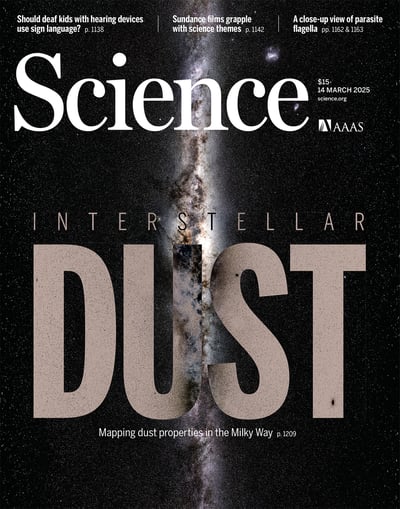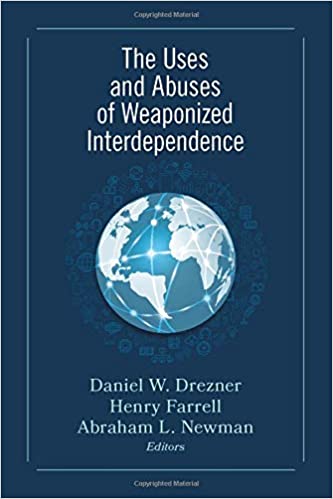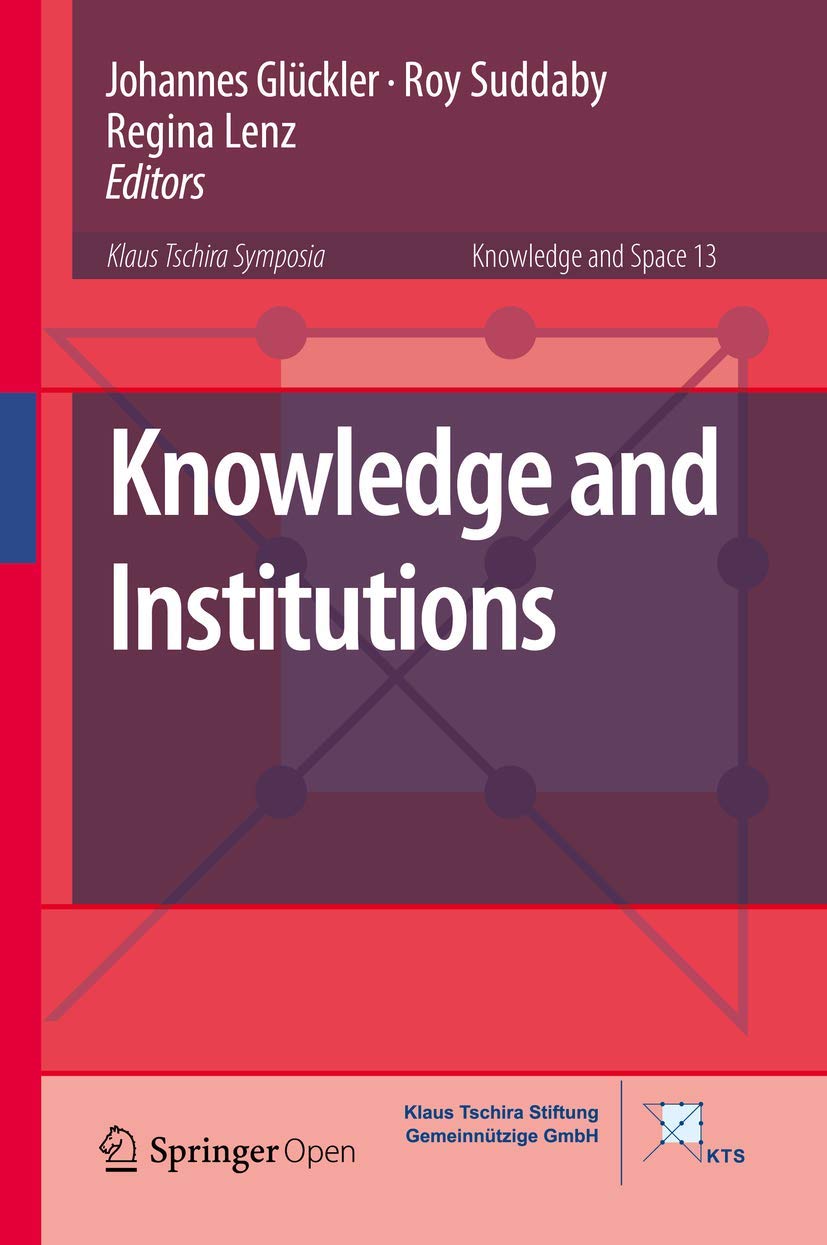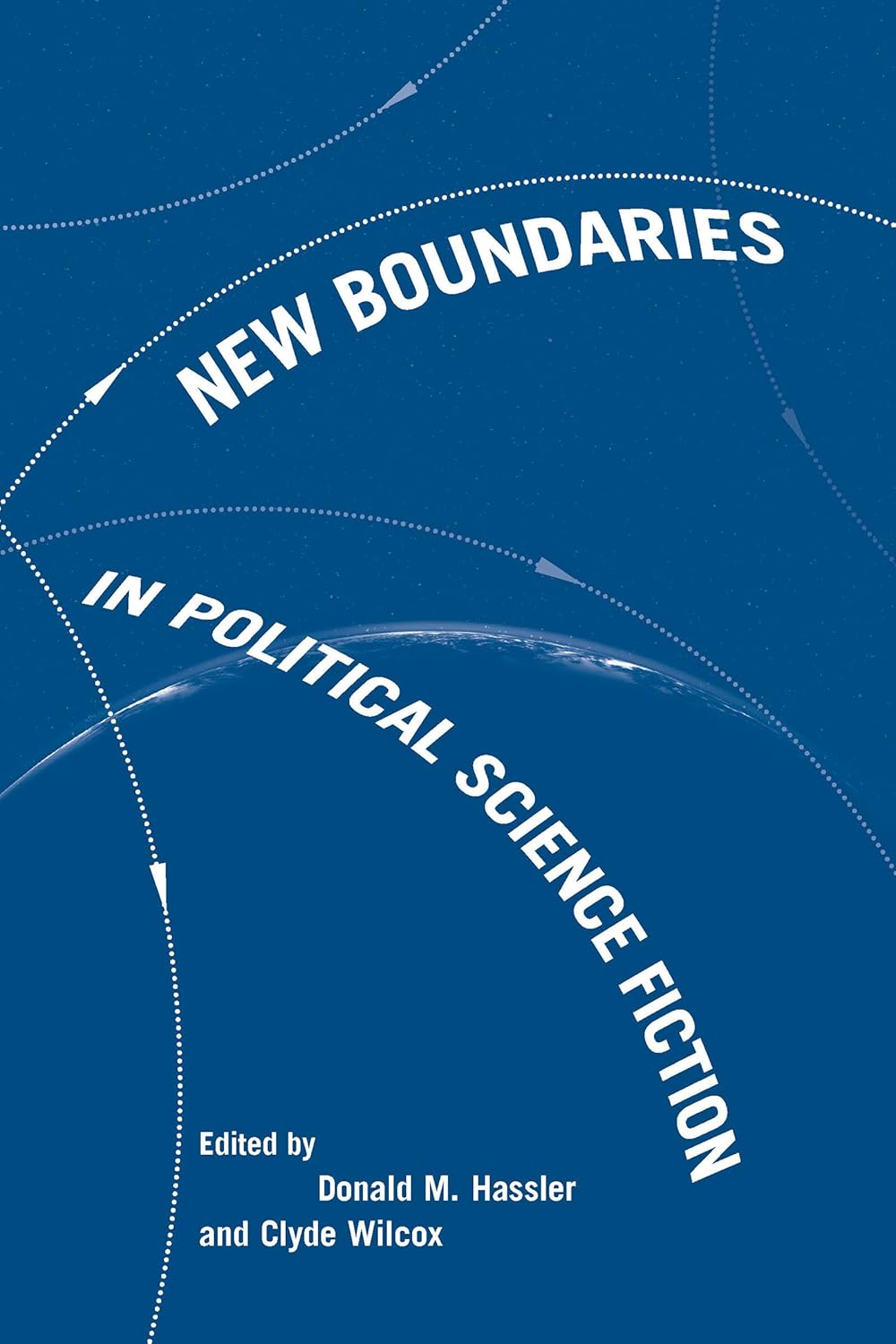Academic Writing
Featured Academic Articles:
Large AI models are cultural and social technologies
March 13, 2025
featured pin Science
Large AI models are cultural and social technologies Implications draw on the history of transformative information systems from the past By Henry Farrell, Alison Gopnik, Cosma Shalizi, and James Evans As per Science’s rules, I hereby am making it clear that the below is the author’s version of the work. It is posted by permission of the AAAS for personal use, not for redistribution. The definitive version was published in Science on March 13, 2025, DOI:10.1126/science.adt9819. If you prefer to read the provisional version in PDF format, click here. Debates about artificial intelligence (AI) tend to revolve around whether large models are intelligent, autonomous agents. Some AI researchers and commentators speculate that we are on the cusp of creating agents ...
Read Article
Henry Farrell Talks to Kim Stanley Robinson
June 11, 2024
featured Vector with Kim Stanley Robinson
Henry Farrell and Kim Stanley Robinson (2024), “Henry Farrell Talks to Kim Stanley Robinson,” Vector, 299. Henry Farrell teaches democracy and international affairs at Johns Hopkins University. Kim Stanley Robinson is a science fiction writer whose most recent novel is The Ministry for the Future. Their conversation took place in March 2023 at Stanford’s Center for Advanced Studies in the Behavioral Sciences, around Tor’s forthcoming June 2024 re-issue of Robinson’s 1984 novel, Icehenge. HF – How did you come to write Icehenge? KSR – When I was a kid I loved stories about archeology, including pseudo-archaeology. There were quite a few fake archaeologies about when people first got to the Americas – the Phoenicians; St. Brendan; the Welsh – I ...
Read Article
The Moral Economy of High-Tech Modernism – with Marion Fourcade
February 28, 2024
Daedalus featured machine learning as social information processing
This short piece compares 21st century machine learning to 19th and 20th century bureaucracy – we hope to write more. While people in and around the tech industry debate whether algorithms are political at all, social scientists take the politics as a given, asking instead how this politics unfolds: how algorithms concretely govern. What we call “high-tech modernism”- the application of machine learning algorithms to organize our social, economic, and political life-has a dual logic. On the one hand, like traditional bureaucracy, it is an engine of classification, even if it categorizes people and things very differently. On the other, like the market, it provides a means of self-adjusting allocation, though its feedback loops work differently from the price system. ...
Read Article
Academic Writing Archives
Featured Chapters in Edited Volumes:
“Weaponized Interdependence and Networked Coercion: A Research Agenda,” in The Uses and Abuses of Weaponized Interdependence – with Abraham Newman – eds. Daniel Drezner, Henry Farrell and Abraham Newman
March 2, 2021
Brookings Institution 2021 eds. Daniel Drezner Henry Farrell and Abraham Newman featured
When we initially wrote our article on weaponized interdependence, we hoped that it would help people think more clearly about how economic coercion was changing. We did not anticipate either ...
Read Article
“The Shared Challenges of Institutional Theories: Rational Choice,” in Historical Institutionalism, and Sociological Institutionalism, Knowledge and Institutions – eds. Johannes Glückler, Roy Suddaby and Regina Lenz
June 8, 2018
economic geography Economics eds. Johannes Glückler Roy Suddaby and Regina Lenz
Scholarship on institutions across the social sciences faces a set of fundamental dilemmas. On the one hand, it needs to explain how institutions change. Yet explanations of change which point ...
Read Article
“Socialist Surrealism: China Miéville’s New Crobuzon Novels,” in New Boundaries in Political Science Fiction – eds. Donald Hassler and Clyde Wilcox
July 7, 2008
eds. Donald Hassler and Clyde Wilcox featured University of South Carolina Press: 2008
How do politics and the science fiction and fantasy genres inform each other? Science fiction has always had a strong undercurrent of utopianism – writers as different in their ideological ...
Read Article
All Academic Articles & Chapters in Edited Volumes
Chapter in an Edited Volume
“Constructing Mid-Range Theories of Trust: The Role of Institutions” in Whom Can We Trust? How Groups, Networks, and Institutions Make Trust Possible (the Capstone volume of the Russell Sage Foundation project on Trust) – eds. Karen Cook, Russell Hardin and Margaret Levi
November 25, 2009
eds. Karen Cook Russell Hardin and Margaret Levi Russell Sage Foundation: 2009
The last fifteen years have seen an explosion in research on trust, but there are still important gaps in our understanding of its sources and ...
Read More
Chapter in an Edited Volume
The Invisible Transformation of the Co-decision Procedure: Problems of Democratic Legitimacy, Institutional Challenges in Post-Constitutional Europe: Governing Change eds. Catherine Moury and Luis de Sousa – with Adrienne Hèritier
July 31, 2009
Routledge: 2009 with Adrienne Hèritier
The relationship between Council and Parliament within the codecision procedure involves a plethora of informal and semi-formal meetings in which many of the real decisions ...
Read More
Academic Article
Ontology, Methodology and Causation in the American School of International Political Economy – with Martha Finnemore
February 7, 2009
eds. (2010) International Political Economy and the Transatlantic Divide. Review of International Political Economy. Republished in Catherine Weaver and Nicola Phillips with Martha Finnemore
This paper explores disjunctures between ontology and methodology in the American school to better understand both the limits of this approach and ways we can ...
Read More
Chapter in an Edited Volume
“Privacy in the Digital Age: States, Private Actors and Hybrid Arrangements,” in Governing Global Electronic Networks: International Perspectives on Power and Policy – eds. William Drake and Ernest Wilson
December 5, 2008
eds. William Drake and Ernest Wilson The MIT Press: 2008
Privacy has emerged as a key regulatory issue in the wake of the information and communications revolution. New technologies have brought new problems; they have ...
Read More
Academic Article
Institutions and Majority Rule in Online Communities – with Melissa Schwartzberg
October 9, 2008
Ethics and International Affairs with Melissa Schwartzberg
Norms, Minorities, and Collective Choice Online Much work in political science and political theory, ranging from the arguments of eighteenth-century political theorists, such as Condorcet ...
Read More
Academic Article
Introduction: Blogs, Politics and Power – with Daniel W. Drezner
September 27, 2007
Bloggers Blogs Internet
There is good reason to believe that blogs are changing politics, but we don’t know exactly how. Nor do we know whether the normative consequences ...
Read More
Academic Article
The Power and Politics of Blogs
September 9, 2007
Bloggers Blogs Internet
The rise of bloggers raises the vexing question of why blogs have any influence at all, given their relatively low readership and lack of central ...
Read More
Academic Article
Introduction: Contested Competences in the European Union
March 15, 2007
West European Politics 30 with Adrienne Hèritier
In this article, we set out an approach to European Union politics that seeks to explain its development using theories of institutional change. In contrast ...
Read More
Academic Article
Codecision and Institutional Change
March 15, 2007
West European Politics 30 with Adrienne Hèritier
This article examines the sources and processes of institutional change in one important aspect of EU politics – the legislative procedure of codecision – and ...
Read More
Academic Article
“Conclusions,” in West European Politics – with Adrienne Hèritier
March 15, 2007
EU West European Politics 30 with Adrienne Hèritier
The articles in this volume provide evidence supporting the claim that organisational actors within the EU do engage in contestation over competences over a wide ...
Read More
Academic Article
“Legislate or Delegate? Bargaining over Implementation and Legislative Authority in the European Union”
March 9, 2007
EU West European Politics 30 with Carl-Fredrik Bergström and Adrienne Hèritier
In this article we explain how actors’ ability to bargain successfully in order to advance their institutional preferences has changed over time as a function ...
Read More
Academic Article
A Rationalist-Institutionalist Explanation of Endogenous Regional Integration
August 17, 2006
Journal of European Public Policy 12 with Adrienne Hèritier
What is at the basis of regional integration and what are the processes that drive integration? Why do integration processes develop faster in some issue ...
Read More
Academic Article
Regulating Information Flows: States, Private Actors and E-Commerce
June 1, 2006
Annual Review of Political Science globalization Governance
Growing interdependence between jurisdictions means that states are increasingly using private actors as proxies in order to achieve desired regulatory outcomes. International relations theory has ...
Read More
Chapter in an Edited Volume
“The Political Economy of the Internet and E-Commerce,” in Political Economy and the Changing Global Order (third edition) – eds. Richard Stubbs and Geoffrey R.D. Underhill
September 1, 2005
eds. Richard Stubbs and Geoffrey R.D. Underhill Oxford: 2005
How have new information technologies affected international political economy? In the heady years of the dot com bubble, many academics and commentators predicted that the ...
Read More
Chapter in an Edited Volume
“Transnational Actors and the Transatlantic Relationship in E-Commerce” in The Negotiation of the Safe Harbor Arrangement, Creating a Transatlantic Marketplace – ed. Michelle Egan
July 22, 2005
ed. Michelle Egan Manchester University Press: 2005
In the recent past, scholars have sought better to understand the evolving EU-US relationship, both in its own right, and as an important example of ...
Read More
Academic Article
Trust and Political Economy: Comparing the Effects of Institutions on Inter-Firm Cooperation
June 9, 2005
Comparative Political Studies
Cooperation between small firms in “industrial districts,” where the production process may be radically dis-integrated, poses an important challenge to current political science theories of ...
Read More
Academic Article
Interorganizational Cooperation and Intraorganizational Power: Early Agreements under Codecision and Their Impact on the Parliament and the Council – with Adrienne Hèritier
December 9, 2004
Comparative Political Studies 37 with Adrienne Hèritier
The authors argue that closer attention should be paid to the interorganizational rules of decision making and their implications for intraorganizational processes. They claim that ...
Read More
Chapter in an Edited Volume
“Trust, Distrust, and Power” in Distrust – ed. Russell Hardin
May 20, 2004
2004 ed. Russell Hardin Russell Sage Foundation
The so-called “encapsulated interest” account of trust, developed by Russell Hardin together with other interested scholars, draws together an important body of thought about trust ...
Read More
Chapter in an Edited Volume
“Collective Goods in the Local Economy: The Packaging Machinery Cluster in Bologna,” Local Production Systems in Europe: Reconstruction and Innovation – with Ann-Louise Holten – ed. Colin Crouch, Patrick Le Galès, Carlo Trigilia and Helmut Voelzkow
February 26, 2004
ed. Colin Crouch Patrick Le Galès Carlo Trigilia and Helmut Voelzkow Oxford University Press 2004 with Ann-Louise Holten
The debate about the industrial districts of central and north-eastern Italy has evolved over the last 25 years. Initially, many saw them as evidence that ...
Read More
Academic Article
Breaking the Path of Institutional Development: Alternatives to the New Determinism in Political Economy
February 9, 2004
Rationality and Society with Colin Crouch
The concept of path dependence is being used in highly deterministic ways in neo-institutionalist analysis, so that studies using this framework have dif.culty in accounting ...
Read More
Academic Article
Trust, Institutions and Institutional Evolution: Industrial Districts and the Social Capital Hypothesis – with Jack Knight
December 9, 2003
Politics and Society with Jack Knight
Much current work in the social sciences seeks to understand the effects of trust and social capital on economic and political outcomes. However, the sources ...
Read More
Academic Article
Formal and Informal Institutions under Codecision: Continuous Constitution-Building in Europe – with Adrienne Hèritier
September 17, 2003
EU Governance with Adrienne Hèritier
Current approaches examining the effect of institutions on policy processes have difficulty in explaining the results of the legislative process of codecision between the European ...
Read More
Academic Article
Constructing the International Foundations of E-Commerce: The EU-US Safe Harbor Arrangement
April 15, 2003
EU International Organization
Much recent international relations scholarship has argued that states are unable to control e-commerce, so that private actors are coming to play a dominant role. ...
Read More
Chapter in an Edited Volume
“Negotiating Privacy across Arenas – The EU-US ‘Safe Harbor’ Discussions,” in Common Goods: Reinventing European and International Governance – ed. Adrienne Hèritier
May 28, 2002
ed. Adrienne Hèritier Rowman and Littlefield: 2002
Much recent theoretical attention has been devoted to the provision of common goods across arenas. The normal problems of common good provision (Olson 1968; Hardin ...
Read More
Academic Article
Hybrid Institutions and the Law: Interface Solutions or Outlaw Arrangements?
May 1, 2002
Zeitschrift für Rechtssoziologie
Much discussion of law and e-commerce focuses on the extent to which e-commerce and the Internet weaken sovereign states’ effective control. Recently, in e-commerce, there ...
Read More





